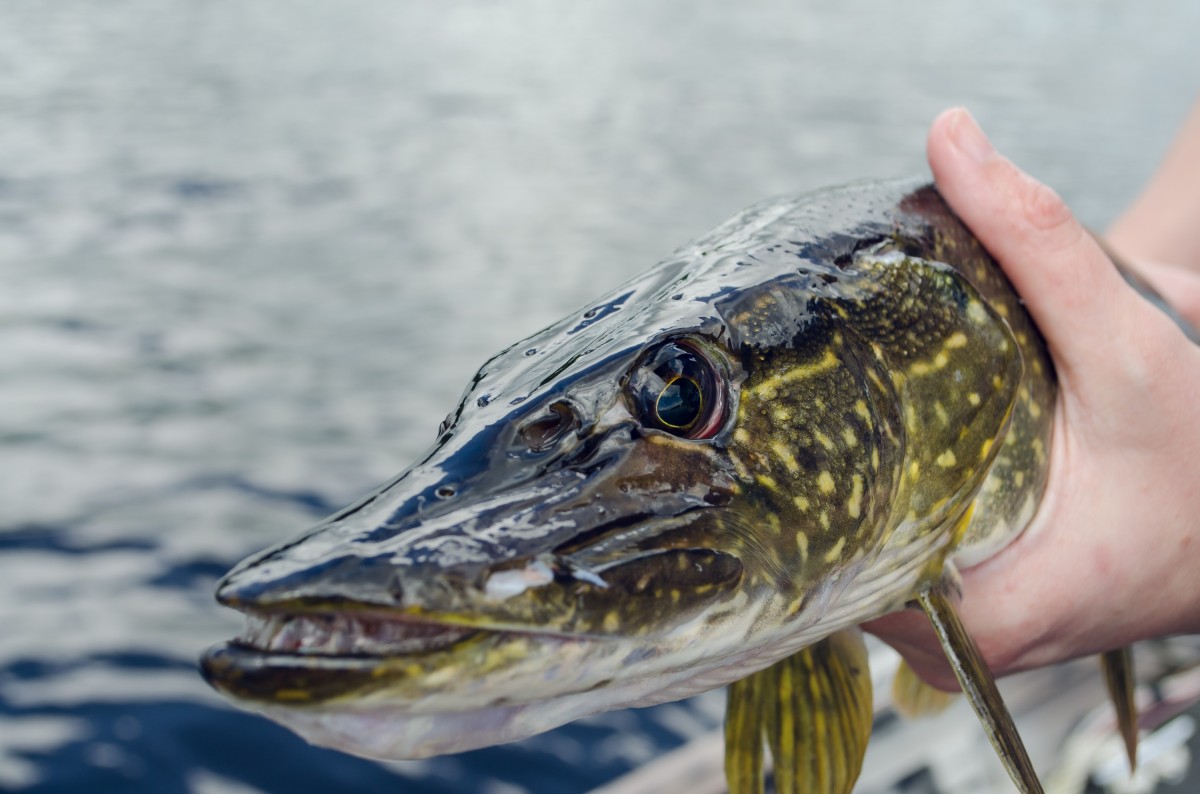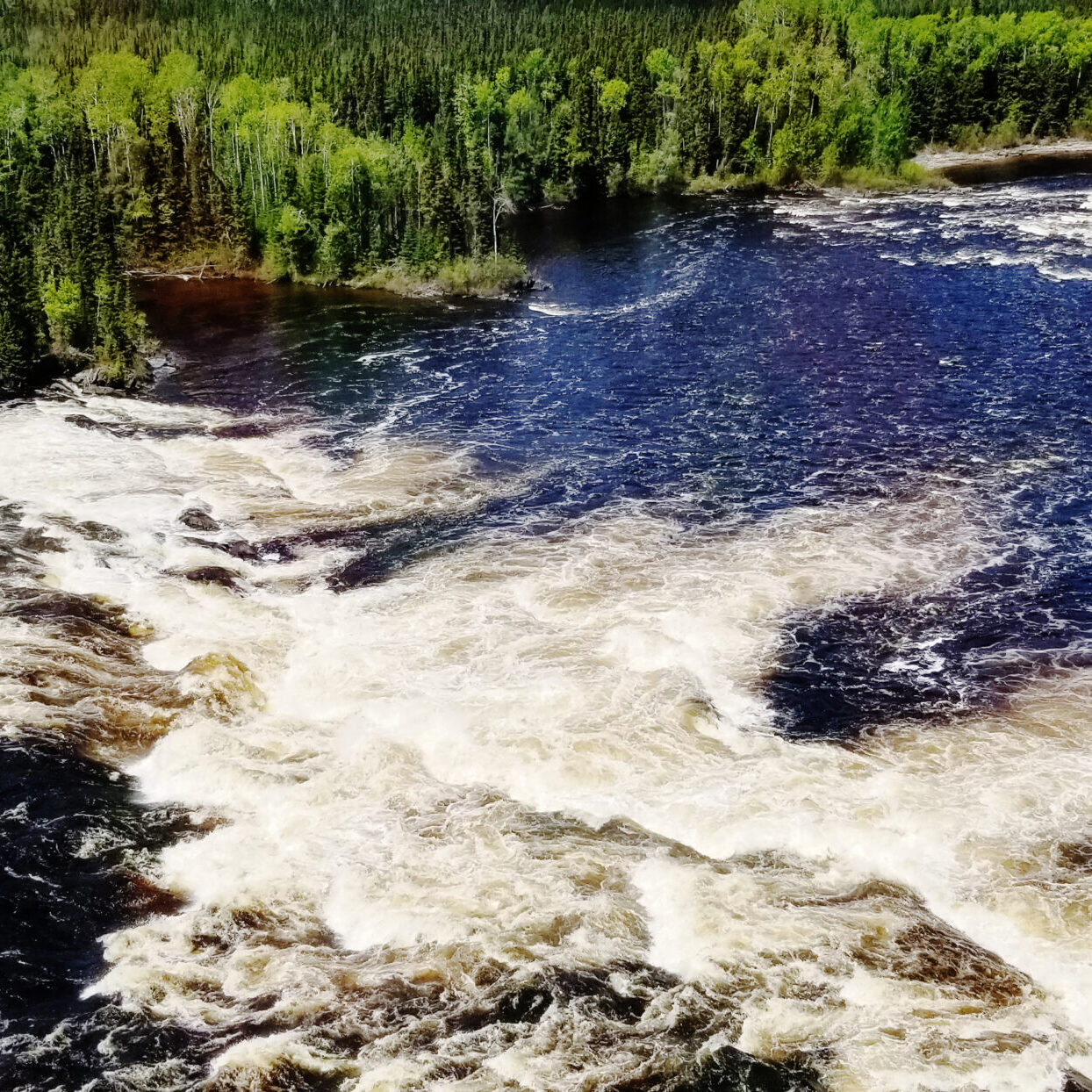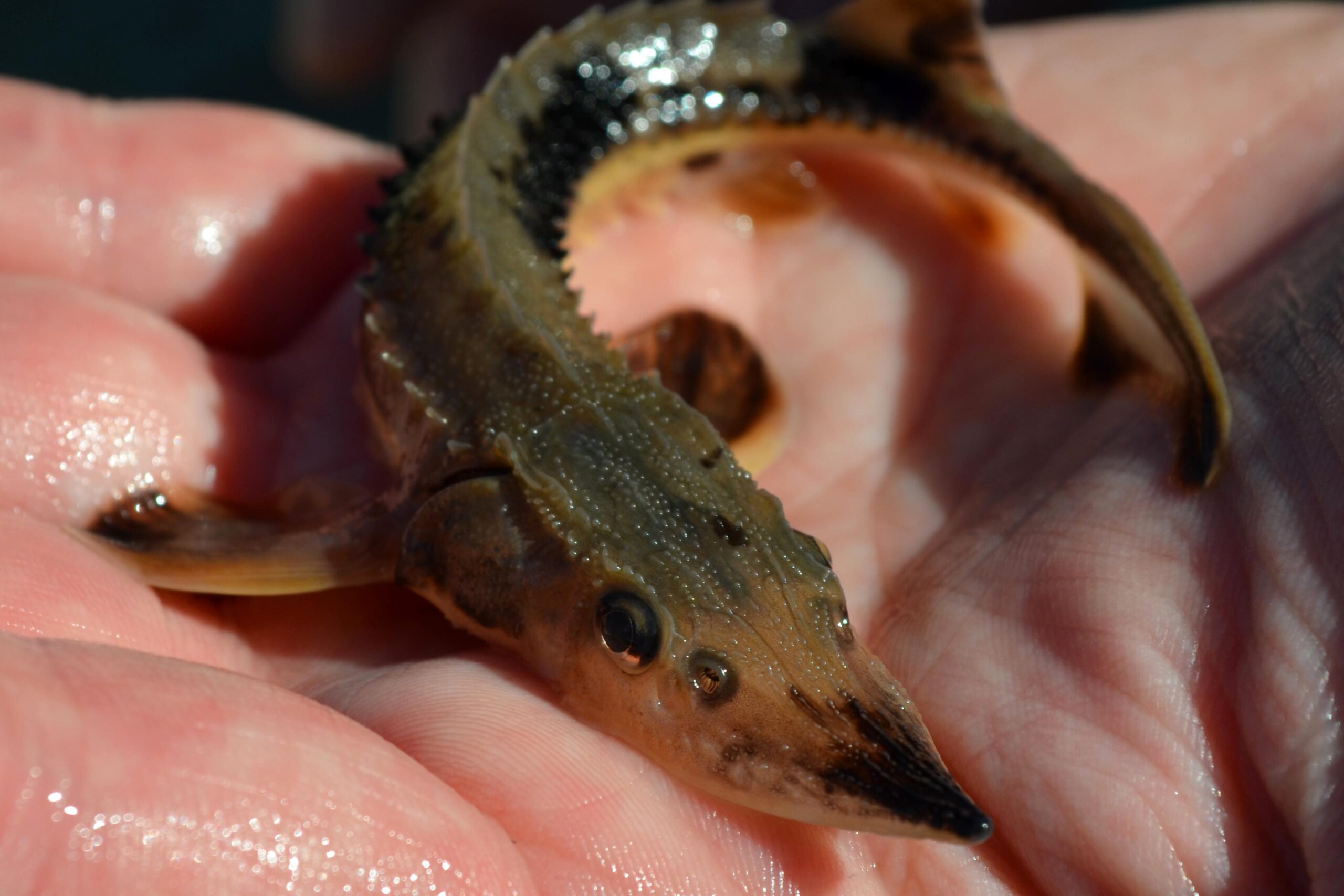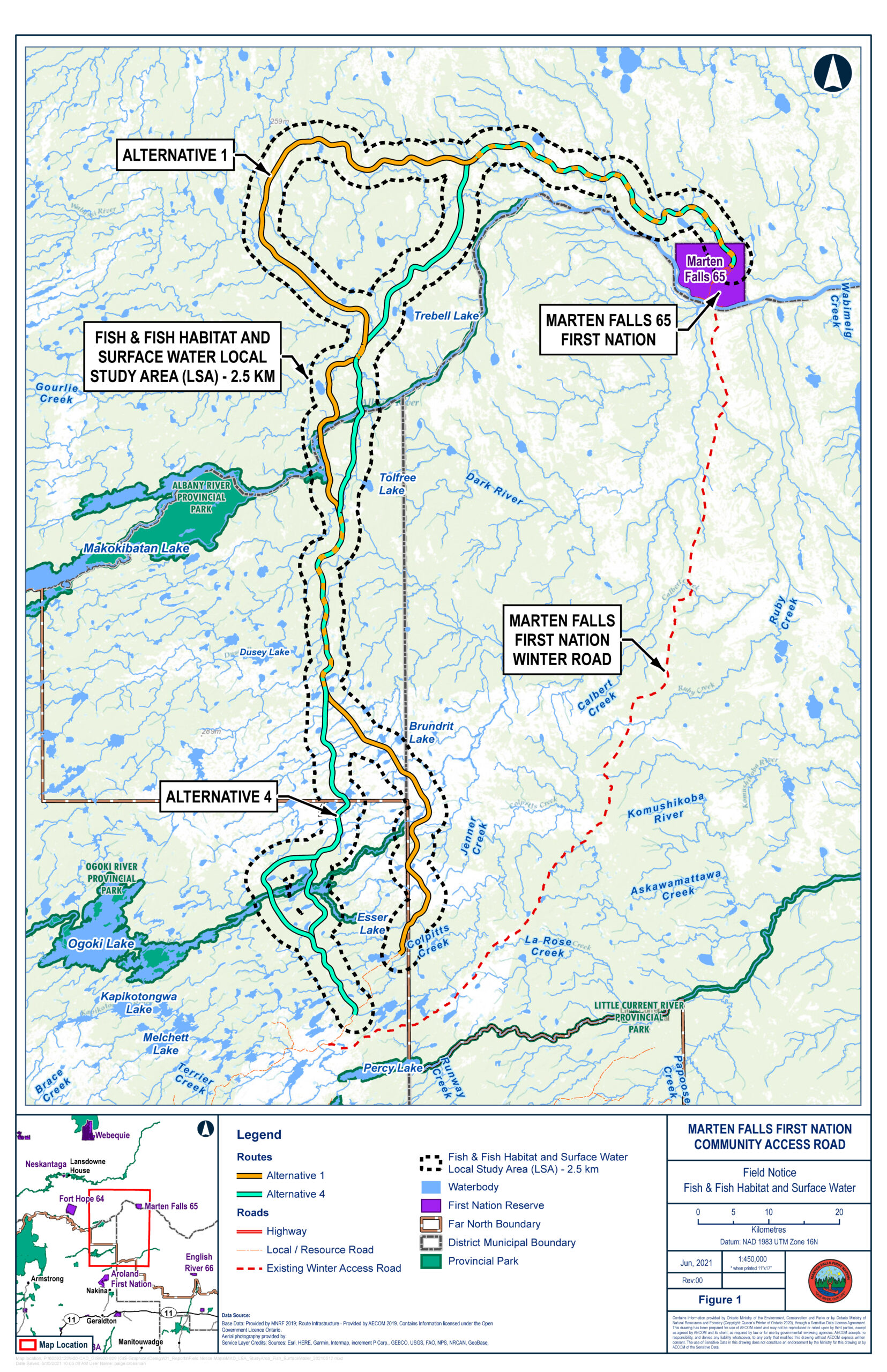Download the PDF version of this Discussion Guide (PDF 8 MB)
The Surface Water, Fish and Fish Habitat Summer Field Program—to document and understand surface water, fish and fish habitat in the study area —is continuing for the federal Impact Assessment (IA) for Marten Falls First Nation’s proposed All-Season Community Access Road. The Terms of Reference (ToR), a framework to guide the provincial Environmental Assessment (EA), is currently with the Ministry of the Environment, Conservation and Parks for review and decision. If the ToR is approved, this field program will also inform the provincial EA.
The purpose of this Discussion Guide is to provide an overview to this upcoming Field Program and receive your feedback on key questions. Your insight will help shape the program.
A field notice will be distributed once dates are confirmed.
What's Happening?
This program will help us understand potential effects that the proposed Community Access Road may have on surface water, fish and fish habitat. The program will collect information over multiple years, on surface water (e.g., lakes, rivers, streams) quantity and quality, sediment quality (e.g., sand, silt, clay), fish habitat and fish communities, and benthic invertebrates (organisms that live at the bottom of lakes, rivers and streams) . This work will be taking place at approximately 50 to 60 water crossings along both of the route alternatives.
This summer’s program builds on previous field studies that took place in 2019 and 2020. Field work done in 2019 and 2020, information gathered through desktop analysis, data collected from other projects in the area, Indigenous Knowledge, and the current field program will each inform our assessment of potential effects the Community Access Road may have.
When?
The work will be starting mid-August 2021 and will take approximately 12 days. In 2022, there will be an additional spring program.

We Need Your Input!
Both Indigenous Knowledge and western science are key to understanding the environment, and will help to decide where the road will go. Currently, we are looking for high-level feedback on items we should be aware of when undertaking this season’s scientific field studies in the areas identified on the provided maps. The planned field studies involve mostly low impact activities and will follow all applicable regulations and guidelines. Indigenous persons continue to accompany the survey crews to support this important work.
Indigenous Knowledge and information on Indigenous land and resource use in the area of the proposed routes can be shared through the Project’s Indigenous Knowledge Program. If you have sensitive and confidential information that you would like to share through this Program, please let us know. We will ensure your knowledge is protected.
Your input is an important part of shaping this field program. If you have any feedback on the following questions, we would like to hear from you:



